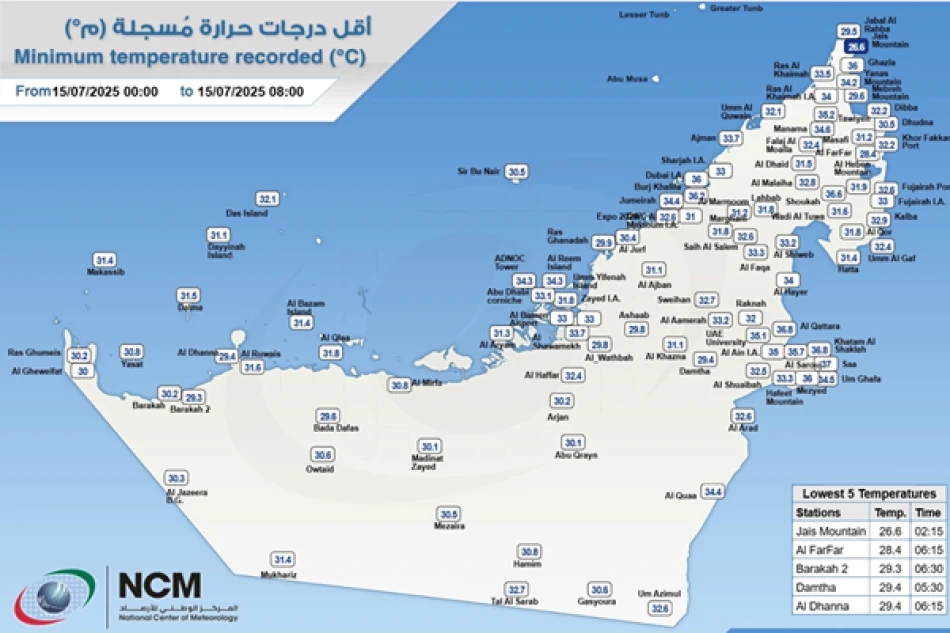
Mount Jais Records Emirate's Lowest Temperature: A Chilly Destination for Outdoor Enthusiasts
UAE Records Unusually High Winter Low of 26.6°C, Highlighting Climate Shift
The UAE's National Center of Meteorology recorded a minimum temperature of 26.6°C (79.9°F) on Tuesday morning at Jebel Jais in Ras Al Khaimah, marking what would traditionally be considered a warm winter day in most global contexts. This temperature reading, taken at 2:15 AM local time at the country's highest peak, underscores the region's consistently elevated baseline temperatures even during cooler months.
Regional Weather Patterns in Context
Jebel Jais, standing at 1,934 meters above sea level, typically experiences the UAE's coolest temperatures due to its elevation. The mountain peak serves as a reliable indicator of the country's minimum temperature ranges, making this reading particularly significant for meteorological tracking.
For international perspective, this "low" temperature in the UAE exceeds typical summer highs in many European cities and represents what most temperate regions would consider a pleasant warm day. The reading reflects the Gulf region's unique climate profile, where even winter minimums remain well above global averages.
Climate Implications and Tourism Impact
Economic Considerations
These consistently warm temperatures during winter months continue to position the UAE as a premier destination for cold-weather escapees from Europe, North America, and other regions experiencing harsh winters. The hospitality and tourism sectors benefit significantly from this climatic advantage, with peak tourist season aligning with these "cooler" months.
Energy and Infrastructure Demands
The temperature readings also highlight the continuous energy demands placed on the UAE's infrastructure. Even minimum temperatures requiring air conditioning in most residential and commercial spaces contribute to the country's substantial energy consumption patterns, driving ongoing investments in renewable energy projects and cooling technology innovations.
Broader Regional Climate Trends
This temperature reading fits within broader patterns observed across the Arabian Peninsula, where climate data consistently shows warming trends over recent decades. The UAE's meteorological monitoring serves as a crucial data point for understanding Gulf region climate evolution and its implications for urban planning, agriculture, and resource management.
The consistent tracking and public reporting of such data by the National Center of Meteorology reflects the UAE's commitment to transparency in climate monitoring, providing valuable information for both residents and the international scientific community studying regional climate patterns.
Most Viewed News

 Layla Al Mansoori
Layla Al Mansoori






